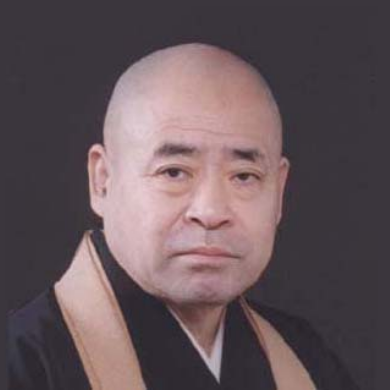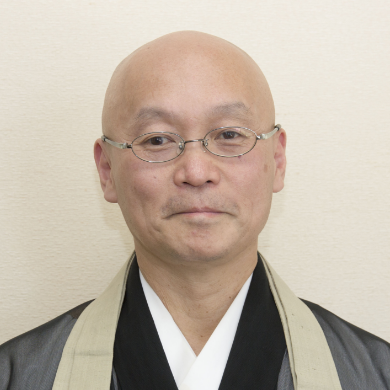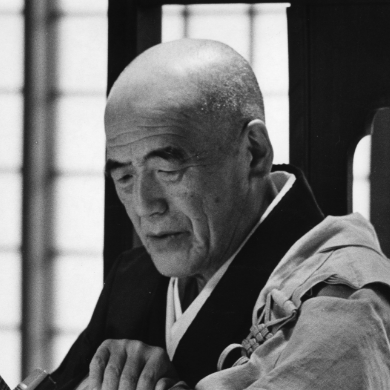About us
Outline of organization
Throughout its long history Zen has been a fundamental spiritual force in East Asia, creating a distinctive culture through its profound influence on literature, philosophy, education, and the fine arts. The continuing cultural role of the Zen tradition, particularly in Japan, has attracted the attention of people throughout the world.
The Institute for Zen Studies was established in January, 1964, with Zen Master Yamada Mumon as its founding president and Rev. Murakami Jikai, abbot of the Golden Pavilion, as its managing director. In the years since then the Institute, with the cooperation and support of Rinzai and Ōbaku Zen temples throughout Japan, has not only produced a large body of research on the culture of Zen but also coordinated the efforts of numerous scholars, Japanese and Western, whose work has contributed greatly to our overall understanding of the Zen tradition. In addition, the Institute has actively promoted Zen on an international scale, assembling a large library of Zen-related materials, publishing hundreds of books and periodicals, presenting lectures, and participating in interreligious dialogue.
As a result, we have in recent years received from Japan and abroad an increasing number of academic enquiries and other communications, confirming our role as both a contact point for the Zen school and a center of research on the Zen tradition. Our international interreligious activities, such as the East-West Spiritual Exchange between Japanese Zen and the European Benedictine tradition, have fostered interfaith understanding and yielded many other beneficial results. Some years ago the Japanese government’s Cabinet Office, recognizing the Institute’s outstanding contributions to the public interest, accredited it as a Kōeki Zaidan Hōjin (Public Service Foundation). The Institute for Zen Studies looks forward both to furthering its academic activities and to providing continuing support for Zen practice suited to the needs of contemporary society.
Purpose and Activities
The Institute for Zen Studies was established in order to:
1) promote comprehensive, multifaceted research on the thought, history, and culture of Zen Buddhism;
2) elucidate Zen’s essential nature and its significance for the modern world;
3) disseminate the results of this research and thereby enrich the spiritual culture of the world.
The Institute is furthering the above goals by supporting:
1) scholarly research on Zen, Zen culture, and Japanese culture;
2) the training of researchers in the fields of Zen, Zen culture, and Japanese culture;
3) the collection and exhibition of literary and other materials relating to Zen, Zen culture, and Japanese culture, as well as the publication of mass-market, academic, and translated books in these areas;
4) Zen-related research and practice for the education of the public;
5) exchange activities with religious seekers, academic researchers, educators, and related institutions in Japan and abroad;
6) various other activities related to the goals of the Institute for Zen Studies.
The above activities are pursued both domestically and internationally.
History
| 1955, 1 June | Founding of the quarterly journal Zen Bunka (Zen Culture) |
|---|---|
| 1959, March | Founding of the Bulletin of the Institute for Zen Studies |
| 1963, 11 November | Government approval secured for the establishment of the Institute for Zen Studies |
| 1964, 25 January | Inauguration ceremony for the Institute at Kitsuji Minami-cho, Ukyo-ku, Kyoto. |
| 1966, 10 September | Publication of Zazen no susume (Let’s Do Zazen), the first in the Institute’s series of monographs |
| 1977, April | Relocation of the Institute to the Yamada Mumon Memorial Hall on the campus of Hanazono University, 8-1 Tsubonouchi-cho, Nakagyo-ku, Kyoto |
| 1979, 30 August | Inauguration of the East-West Spiritual Exchange, a program of intermonastic dialogue between Buddhism and Roman Catholicism |
| 1987 | Publication commences on the Classic Texts of Zen series |
| 1993, 4 May | The Institute assumes administrative responsibilities for the Joint Council of the Rinzai and Ōbaku Schools |
| 1995 | Work begins on the wood-block print edition of Zen Master Hakuin’s works |
| 1997, April | Foundation of the Japan-China Rinzai and Ōbaku Friendship Association, administered by the Institute |
| 1999, June | To commemorate its thirty-fifth anniversary, the Institute establishes the Zen Culture Prize, awarded once every five years |
| 2012,April | On April 1, 2012, the Institute for Zen Studies was accredited by the Japanese government’s Cabinet Office as a Kōeki Zaidan Hōjin (Public Service Foundation). The Institute official name was therefore changed to Kōeki Zaidan Hōjin Zen Bunka Kenkyūsho. |
Past Directors/Chairmen
We would like to introduce the biographies of the Director and Chairman of the Board since its establishment to the present.
Past Directors
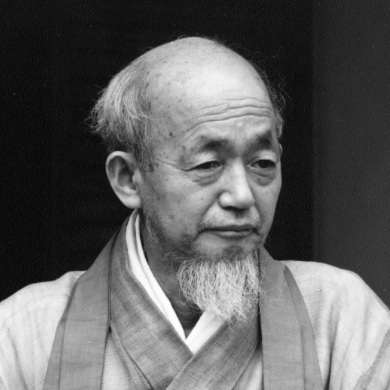
Yamada Mumon
January 1964 – January 1988
Yamada Mumon was born in Aichi Prefecture on July 16, 1900. After graduating from Waseda Middle School and Rinzaishū College he trained as a Zen monk at Tenryū-ji Monastery. He served as abbot of Reiun-in and Shōfuku-ji, president of Hanazono University, director of the Institute for Zen Studies, and chief abbot of Myōshin-ji. He passed away on December 24, 1988. Yamada Roshi was the author of numerous books, including Lectures on the Blue Cliff Records (10 vols., in Japanese); The Record of Linji (in Japanese); and The Ten Oxherding Pictures (in Japanese).
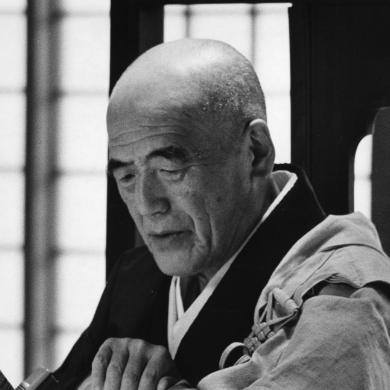
Hirata Seikō
January 1988 – March 1994
Hirata Seikō was born in Kyoto on August 26, 1924. After graduating from the Department of Philosophy at Kyoto University he trained in Zen at Tenryū-ji Monastery, then spent two years in Germany studying philosophy. Following his return he was appointed Zen master at Tenryū-ji Monastery. He simultaneously served as Director and Chairman of the Board at the Institute for Zen Studies. In 1991 he was named Chief Abbot of Tenryū-ji, a position he held until his death on January 9, 2008. His many books include The Zen Point of View (in Japanese), The Zen that Gives Life (in Japanese); and A Zen Lexicon (in Japanese).

Yamada Sōbin
April 1994 – March 1999
Yamada Sōbin was born in Gifu Prefecture in the year 1920 and trained in Zen at Myōshin-ji Monastery. After graduating from the Department of Literature at Hanazono University and Ryūkoku University he was appointed abbot of Shinju-an, a subtemple of Daitoku-ji established by the famous Zen monk Ikkyū. After serving as secretary general of Daitoku-ji he became director of the Institute for Zen Studies. He passed away on March 25, 2008. His publications include Zen at Daitoku-ji (in English; with Jon Covell), Daitoku-ji and Zen, and The History of Daitoku-ji through Written Materials (in Japanese).
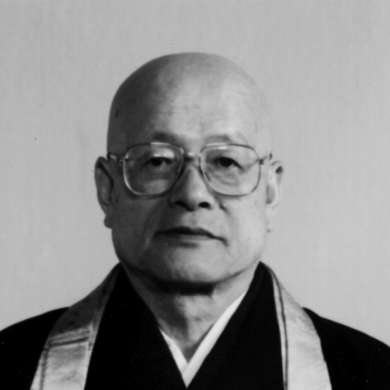
Hirano Sōjō
May 2000 – July 2002
Hirano Sōjō was born in 1928 in the city of Sakae, Osaka Prefecture. He received ordination under Yamada Sōbin of Shinju-an, Daitoku-ji, and studied at Hanazono University. After graduating from Hanazono with a degree in Buddhist Studies he trained at Shōfuku-ji and Zuigan-ji Monasteries, receiving Dharma transmission from Katō Ryūhō Roshi. He taught at Hanazono University until 1988, when he was appointed Zen master at Zuigan-ji Monastery. He died on July 6, 2002. Among his numerous books on Zen are Ikkyū Sōjun, Annotated Recorded Sayings of Daitō, and Essential Teachings on Sudden Enlightenment (all in Japanese).
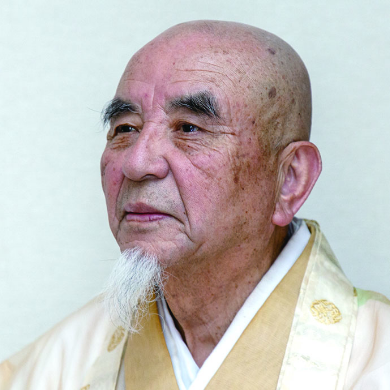
Nishimura Eshin
April 2005 – Jun 2016
Born in 1933 in Shiga Prefecture, Nishimura Eshin graduated with a degree in Zen Philosophy from Hanazono University and trained in Zen at Nanzen-ji Monastery. After assuming the abbacy of Kōfuku-ji in Shiga Preferecture in 1959 he spent a year abroad studying at the Pendle Hill Quaker Center for Study and Contemplation in Wallingford, Pennsylvania. In 1960 he joined the staff of the Institute for Zen Studies, and in 1970 completed coursework for the Ph.D. program at Kyoto University. After serving as professor on the faculty of the Department of Literature at Hanazono University he was appointed the university’s president. His numerous publications include The Theory and Practice of Investigating the Self, What Does It Mean to Be a Buddhist?, and Buddhist Teachings for Raising Children (all in Japanese).
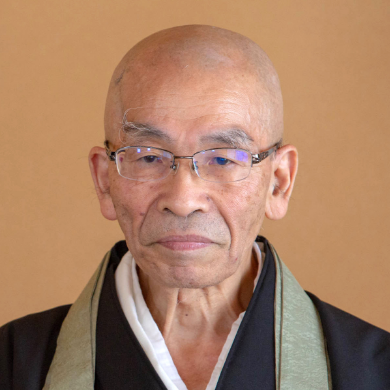
Dōmae Jimyo
Jun 2016 – Present
Dōmae Jimyō was born in May, 1942, in Fukui Prefecture. In 1972 he withdrew from the doctoral program in philosophy at Kyoto University to receive ordination as a Zen monk at Jūkō-in in Daitoku-ji. He trained in Zen under Minato Sodō Roshi at Kenchō-ji Monastery in Kamakura and Kennin-ji Monastery in Kyoto from 1974 until 1991, when he became priest of Fukujō-ji in Kyoto. Commuting from Fukujō-ji, he continued his training under Shinohara Daiyū Roshi at Eigen-ji Monastery and received Dharma transmission in 2000. In April, 2013 he was appointed Zen master and chief abbot of Eigen-ji. His formal teaching name is Kaian Kutsu. Among his publications are the books Kunchū ‘Kaian kokugo’ and Kōteiban ‘Shūmon kattōshū’ (both in Japanese; published by the Institute for Zen Studies).
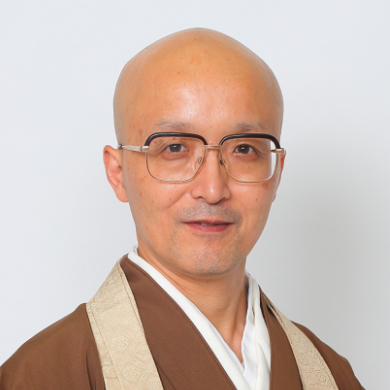
Yokota Nanrei
July 2023 Present
Yokota Nanrei was born in 1964, in the city of Shingū in Wakayama Prefecture. While a student at Tsukuba University he received ordination as a Zen monk; upon completing his university studies he entered Kennin-ji Monastery to begin Zen monastic training. From 1991 he continued his training at Engaku-ji Monastery in Kamakura, and in 1999 was designated as the monastery’s new Zen master. He assumed the position of chief abbot of Engaku-ji in 2010, and in 2017 became chancellor of Hanazono University. His formal Zen teaching name is Seishōken. Among his many books are Rinzairoku ni manabu (Learning from the Record of Rinzai), Jūgyūzu ni manabu (Learning from the Ten Oxherding Pictures), Zen to deau (Encountering Zen), Zen kokyū: Kenkō wa Hakuin-san kara (Zen Breathing: Teachings on Health from Hakuin), Nido to nai jinsei o ikiru tame ni (How to Live this Precious Human Life), and Panda wa doko ni iru? (Where Is the Panda?).
Chairmen of the Board

Murakami Jikai
January 1964 – March 1980
Murakami Jikai was born in 1902 in Aichi Prefecture and received ordination in 1916 at Rokuon-ji (better known as the Golden Pavilion). After receiving a degree in philosophy from Ōtani University he trained at Tenryū-ji Monastery and subsequently assumed the abbacy of Rokuon-ji. He also served as Secretary General of Shōkoku-ji and abbot of Jishō-ji (the Silver Pavilion).
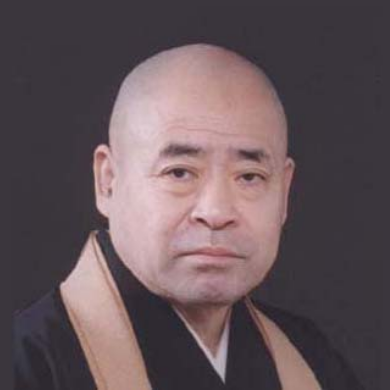
Hosokawa Kei’itsu
April 1994 – June 2012
Born in Aichi Prefecture in 1940, Hosokawa Kei’itsu received ordination at Ryūun-ji in Tokyo and graduated from Komazawa University. Following completion of his Zen training at Myōshin-ji Monastery he was appointed abbot of Ryūun-ji. In addition to serving as Chairman of the Board at the Institute for Zen Studies he has held a number of important positions in Rinzai Zen, including Secretary General of Myōshin-ji and President of Hanazono University. He has published A White Horse in a Field of Reed Flowers (in Japanese) and other works.
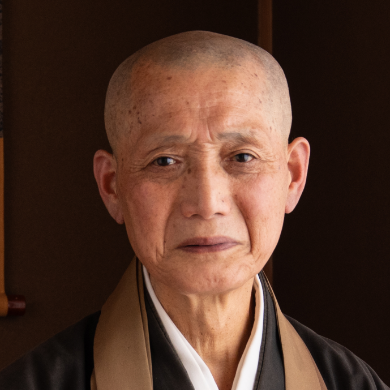
Sasaki Dōitsu
June 2012 – June 2018
Sasaki Dōitsu was born in Iwate Prefecture in 1952. At the age of thirty-three he received ordination from Nishio Sōteki at Manju-ji monastery in Oita Prefecture. After a period of monastic formation at Myōshin-ji he continued his training at Manju-ji and received inka from Nishio Roshi. In 2006 he succeeded Nishio Roshi as abbot.
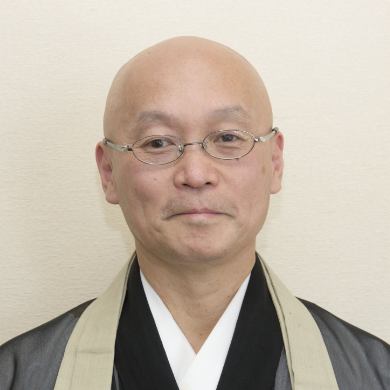
Matsutake Kanzan
June 2018 – Present
Matsutake Kanzan was born in Nagasaki Prefecture in December, 1959. He attended Nihon University, receiving an M.A. in psychology in 1984 with additional doctoral studies. In 1986 he entered Heirin-ji Monastery, training under Itohara Ennō Roshi and Nonomura Genryō Roshi for a total of seventeen years. In 2005, after succeeding to Genryō Roshi’s Dharma, he obtained certification as a Myōshinji-school lecturer. A year later he assumed the posts of director of the Myōshin-ji Tokyo Zen Center and part-time lecturer at Hanazono University, followed by appointment to a part-time lecturer position at Toyo University in 2009. He became the twenty-fifth abbot of Heirin-ji in 2011. His formal teaching name is Kōfū Shitsu.
Access
The Institute For Zen Studies
〒604-8456 8-1 Tsubonouchi-cho, Nishinokyo, Nakagyo-ku, Kyoto City, Hanazono University
TEL 075-811-5189 FAX 075-811-1432
 Japanese siteTOP
Japanese siteTOP 

